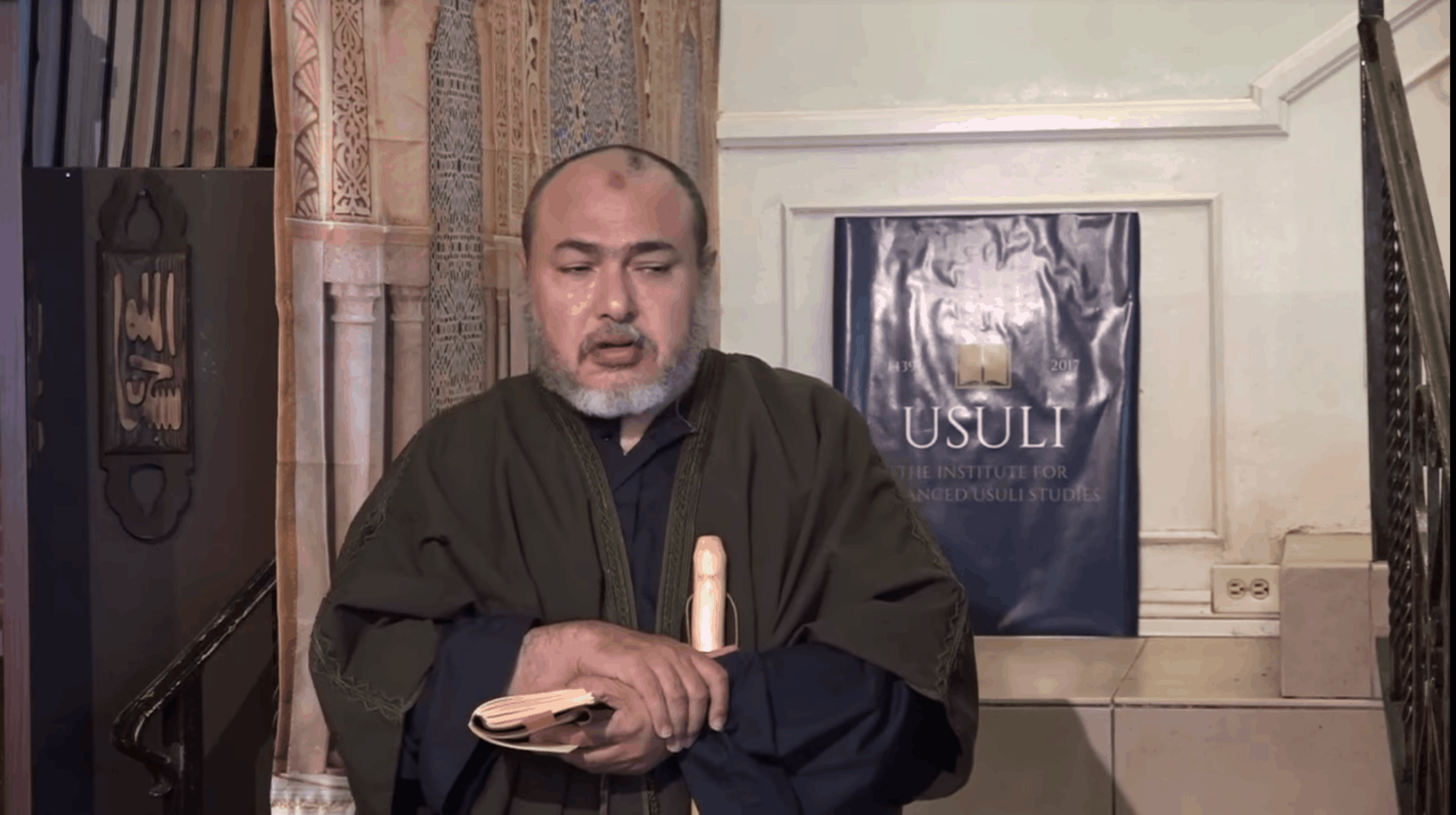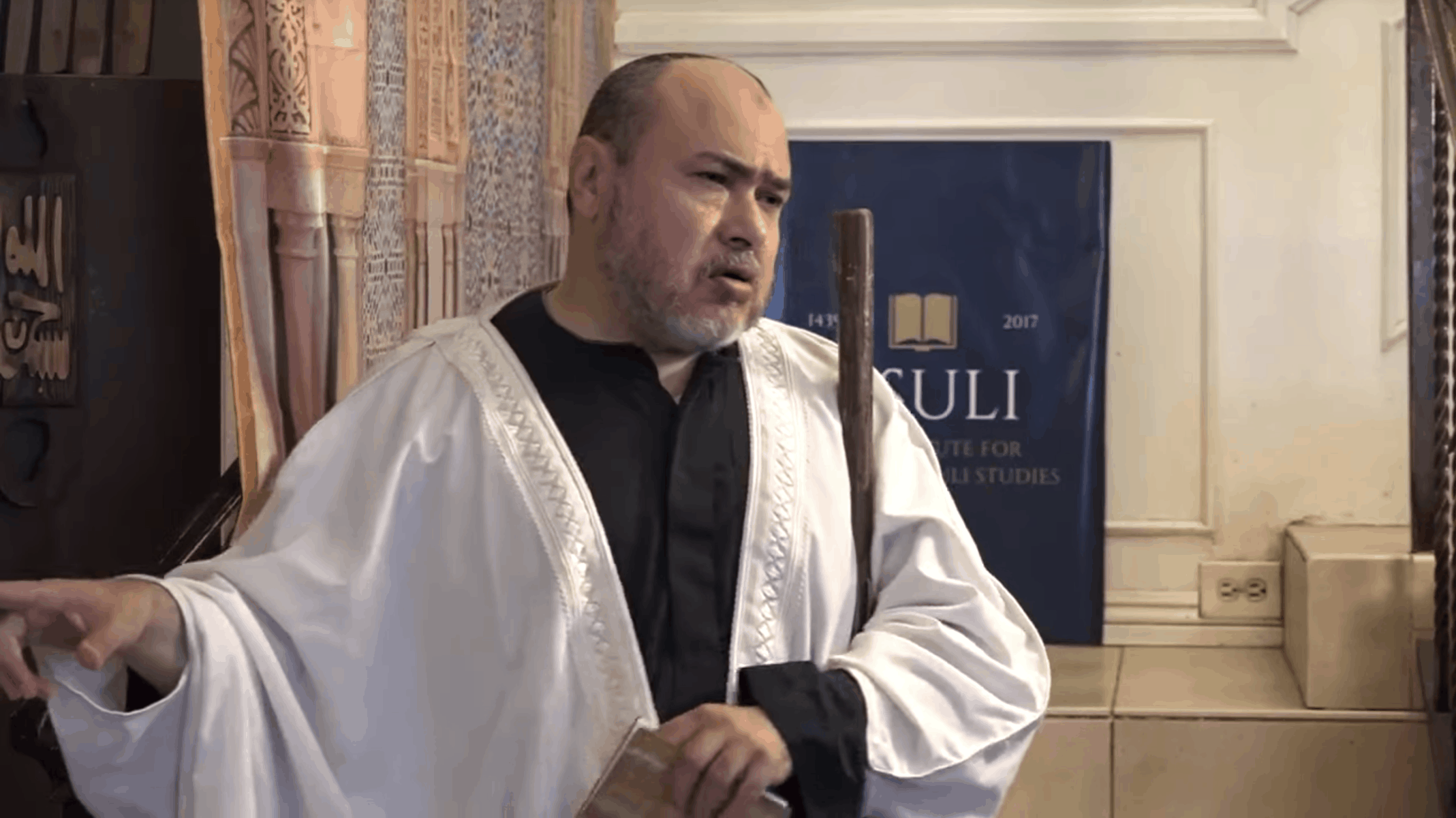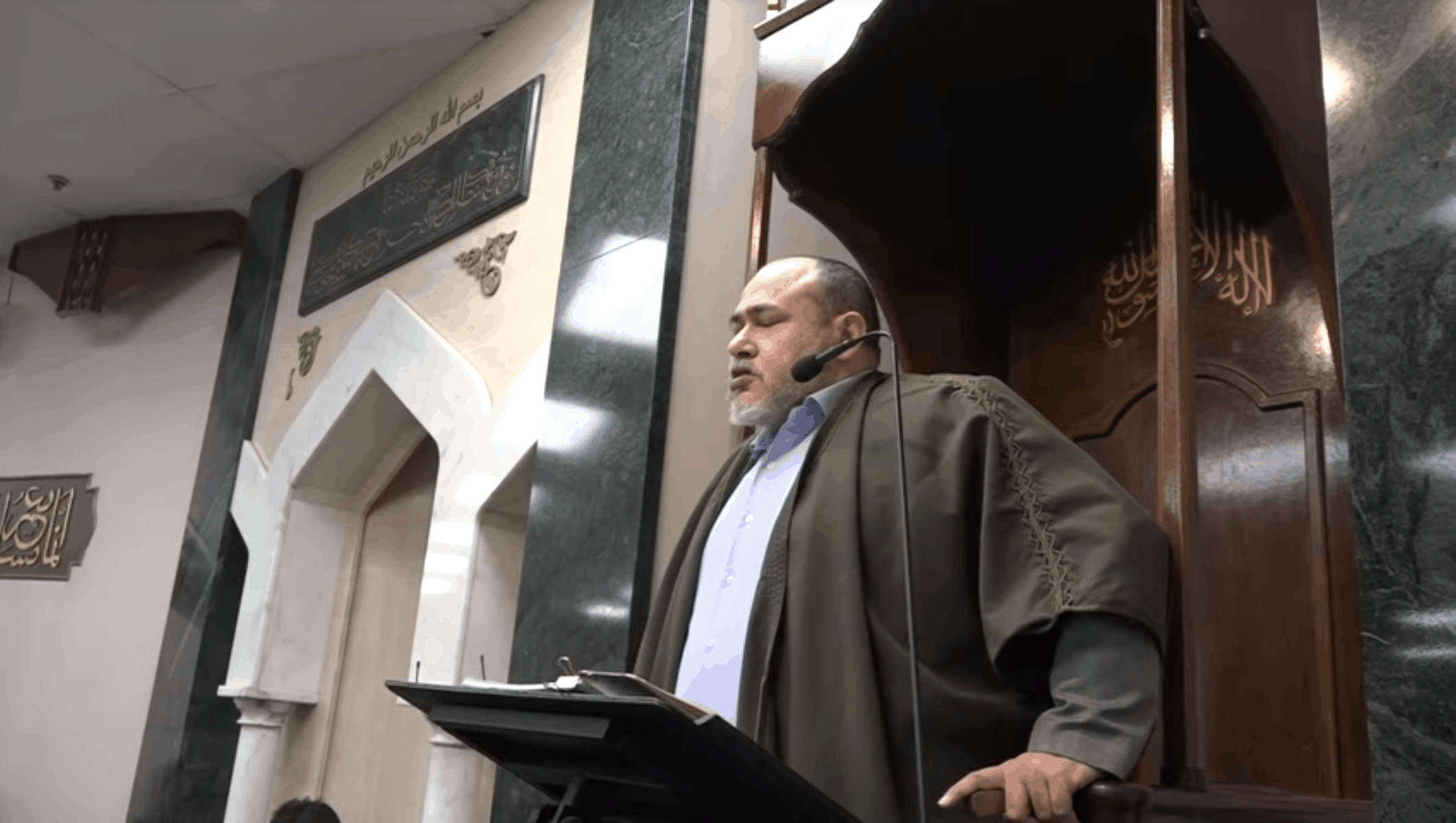Dr. Khaled Abou El Fadl begins by reminding of the anchor of every day and age, the Qur’an, and that those who make it part of their soul will thrive; those who do not will remain in confusion at a minimum. He reminds that the Quran calls upon us to “Strive in the way of your Lord,” and that struggle and striving require time, energy, investment and effort. He cites verses from the Quran that tell us that God has selected Muslims–not based on racial, ethnic, tribal, or linguistic factors, but based on a relationship. It is a commitment based on the understanding that: you are among those who struggle in the path of God; you are committed to the struggle; if you find God, you will find the true source of happiness, tranquility and meaning; you are among those who understand that existentially, without Allah, nothing makes sense; with Allah your life has a purpose, and it has consequences, which is a foundational principle for morality itself. If you are among those, then you are among those God has chosen. He cites another Quranic verse that tells us that our relationship with God should lead to peace and tranquillity, not rancor, anger, envy or other human emotions that harm the soul and cause hardship.
He points out that one of the critical tasks that we are called to perform as Muslims is to bear witness upon people. Bearing witness was a sacred job and a moral task that predated Islam, Christianity and Judaism. God knows that bearing witness is a difficult task because it can bring profound consequences as people do not like to be confronted with the truth, especially those in power. However, if you want to create a society that is ethically consistent with Islam, you must create a society in which bearing witness does not lead to hardship. When bearing witness and telling the truth create hardship, human nature is to avoid pain, and will naturally tend to justify behavior that avoids pain. This leads to hypocrisy in the heart. It takes real struggle to go against this natural instinct, especially when it means bearing witness on the side of God and the Prophet in truth in opposition to those in power.
He explains that today, Wahhabism is no longer the problem, rather the theology of obedience to the state that is being propagated as an Islamic imperative all over the world. Under this theology, a Muslim learns that Islam is not intended to create autonomous, active, dynamic, thoughtful, and moral human beings, but rather, creates subservient and obedient human beings, whose relationship to politics is simple obedience. He points out that a society built on such despotism and obedience will breed hypocrisy and cowardliness. This type of Islam will ultimately lead to Islam’s death. This type of hypocrisy is what turns Muslim youth away from the faith.
He gives important examples of how this theology of obedience has resulted in devastation all across the Muslim world, and how it has made Muslims, particularly many Muslim “leaders” begin justifying and supporting the obscene acts of those in power, even to the point of suggesting that Al-Aqsa Mosque in Jerusalem is not holy in Islam. He gives examples of how ultimately, this quietist, pacifist, obedience theology leads to moral relativism, patriarchy and even the justification of slavery. It teaches people that the most important parts of their religion are prayer, fasting and charity, and that all else is unimportant. He draws the analogy to Karl Marx’s assertion that religion is the opiate of the masses, and demonstrates how this version of Islam–an Islam without ethics, without a vision, without a commitment to justice–would be exactly that. Delivered 23 August 2019.
Dr. Khaled Abou El Fadl reminds of the tradition of the Prophet Muhammad in which human beings are told not to surrender, rely upon, become pacified, embrace or turn oneself over to the unjust. He reminds us of the weight and seriousness of “the Word” and the moral and ethical obligation upon human beings through their relationship with the Word. He recalls to the tradition that the word is light, the pen is light, the intellect is light and the ink is light–a symbolic construct of the relationship between Creation and the Word. In a moving and powerful testimony, Dr. Abou El Fadl recounts the tragedies taking place around the world against Muslims, and his own wrestling of the conscience to speak out for truth and against injustice as if in the wilderness. He presents the cases of horrific human rights violations in Syria, in Egypt and in places all around the world where Muslims are suffering, and the associated complicity of Muslim governments and the reactions of Muslims around the world. He laments the ironies of the invitation and subsequent refusal of the U.S. singer Nicki Minaj to perform in the Hijaz, the land of the Prophet in Saudi Arabia. He juxtaposes her moral stand against the abuses being committed in Saudi Arabia to that of fellow Muslims, particularly those who refuse to take a stand and prevent others who want to take a stand, as in the local case of the Islamic Center of Southern California most recently. Lastly, he addresses the establishment of the U.S. Commission on Human Rights this past week and the clear implications and hypocrisies of such a commission given the Trump Administration’s stated positions and actions, as well as the ideological positions of those appointed to the commission. He addresses the appointment of Hamza Yusuf to the commission and its implications for Islam and Muslims, particularly in the West. Powerful and eye-opening. Delivered 12 July 2019.
Dr. Khaled Abou El Fadl powerfully addresses the evil acts of murder committed against Muslims in New Zealand. He addresses how this history of massacres committed against Muslims have been ongoing since the Bosnian Genocide through today and is grounded in the well-funded Islamophobia industry campaigns of our day. He talks about the impact of racism in acts of terror against Muslims and how similar acts of terror by white extremists are addressed by comparison. He discusses the manifestos of both this New Zealand shooter and Anders Brevik, who wrote a 600+ page manifesto of hate, both drawing deeply from the American Islamophobes such as Daniel Pipes, Robert Spencer and Steven Emerson. Dr. Abou El Fadl read each of these manifestos in full. The insights from these hate tracts were not those of simply deranged human beings, but the dark fruit and lethal consequence of massive, steady investments in the Islamophobia hate industry. He calls on Muslims to step up and do the necessary work to match if not exceed their investment in actively countering the American Islamophobia hate industry. Delivered at the Islamic Center of Southern California, Los Angeles, 15 March 2019.
Insightful lecture and Q&A on the dual complexities of Islam and terrorism and how to understand their relationship in light of the tragedies of September 11.
Please make dua for the following who help contribute monthly to Halal Tube to cover our hosting costs:
© 2007 - 2026 - Halal Tube - Powered by Allah


